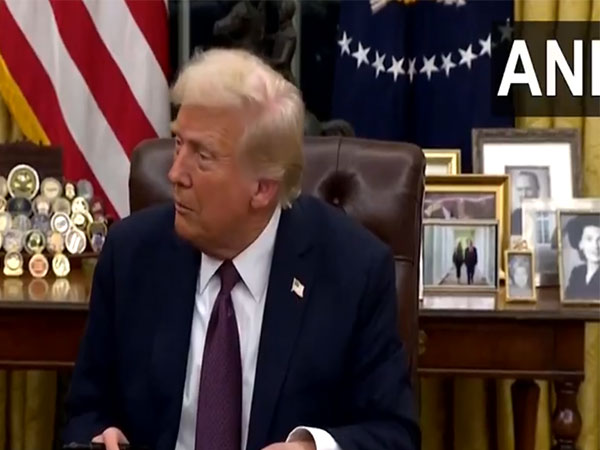Trump 2.0 Cabinet's Hawkish Stance: Sweeping Changes Afoot in Global Policies
The Trump 2.0 administration is set to take aggressive measures in fiscal policy, foreign relations, and national security, according to a new report. Key initiatives include maintaining the dollar's dominance, implementing tariffs, reducing the budget deficit, and confronting China's influence, potentially reshaping global economic and diplomatic relations.

- Country:
- India
The Trump 2.0 cabinet is expected to adopt an aggressive stance on numerous fronts, as indicated by a Union Bank of India report. Members are prepared to effectuate sweeping changes in fiscal policy, foreign affairs, and national security.
The report, titled 'Trump's Cabinet Likely to be Hawkish; All Eyes on Their Action Next Week,' underscores that new US Treasury Secretary Scott Bessent aims to preserve the dollar's supremacy as the global reserve currency.
Advocating for a permanent tax cut to prevent a USD 4 trillion rise, Bessent views this as a pivotal step toward sustaining economic growth. He also regards tariffs as essential tools in trade negotiations, advocating their deployment in forthcoming deals. His fiscal agenda involves slashing the US budget deficit to 3% of GDP by 2028, emphasizing a commitment to enduring economic stability.
President Donald Trump, during his inauguration, reiterated threats towards BRICS nations, including India, stating that those persisting in de-dollarization efforts would face 100 per cent tariffs on US trade. He asserted, "If the BRICS nations want to do that, that's OK, but we're going to impose at least a 100 per cent tariff on their business with the United States... Since making that statement, Biden claimed they have us over a barrel. I countered, No, we have them over a barrel. They won't succeed," Trump added.
Before assuming office as the 47th US President, Trump threatened BRICS countries with 100 per cent tariffs on imports if they initiated their currency launch. Secretary of State Marco Rubio is anticipated to adopt a stringent stance on China. Known for his criticisms of Beijing, Rubio has spearheaded legislation to prohibit Chinese telecom equipment in the US and advocated for heightened support for Taiwan.
His focus on China signals a more assertive approach to US-China relations, potentially escalating tensions but also fortifying alliances in the Indo-Pacific region. Elon Musk, at the helm of the newly established Department of Government Efficiency (DOGE), has pledged substantial budget cuts, targeting a reduction in federal spending by USD 2 trillion, with an initial aim of slashing over USD 500 billion annually. This drive for fiscal restraint could profoundly impact federal programs and expenditures.
National Security Advisor Mike Waltz emphasizes refocusing efforts to confront threats from China, stressing the need to resolve conflicts in Ukraine and the Middle East to prioritize Chinese Communist Party confrontations. Waltz's approach suggests a strategic shift in US foreign policy, reallocating resources to counter China's expanding influence. The report highlights that Trump administration policies could induce profound changes in global trade, diplomacy, and economic dynamics, with the world eagerly awaiting the cabinet's forthcoming actions. (ANI)
(With inputs from agencies.)
ALSO READ
Biden, Nippon Steel, and the U.S. Steel Saga: A Legal Battle Over National Security and Politics
Tragic Naxal Attack in Chhattisgarh's Bijapur: National Security Concerns Rise
TikTok Supreme Court Showdown: Free Speech vs. National Security
Hackers Breach CFIUS: National Security at Risk
Supreme Court Showdown: TikTok, Free Speech, and National Security










